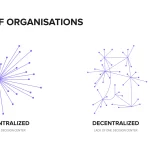
Emergence of customer data analytics in marketing has raised various ethical concerns, such as handling of customers’ privacy and implications for future data collection regulations. A review was performed of existing literature on this topic using specific inclusion/exclusion criteria to make an assessment.
Findings have demonstrated that ethical considerations within marketing mix strategies significantly impact consumer-brand relationships and product perceptions in B2C transactions, ultimately increasing brand loyalty for corporate enterprises.
Ethical Issues in Trade Marketing Analytics
Normative research began to take form in the 1960s, driven by a desire to ensure public trust in market research. Early contributions suggested that practitioners had an incentive to behave ethically through business transactions and focused on code of conduct content.
More recently, literature has taken an empirical turn. Ferrell and Gresham’s model suggests that individuals’ ethical decisions depend on perceived consequences from their actions, the ability to make ethical choices when available, and whether relevant norms exist within their workplace.
Numerous studies have examined the factors underlying research ethics attitudes and behavior, including an examination of Crawford (1970)’s role-modelling effect. Akaah reports that codes of ethics, organizational rank and industry category lack significance as correlates for research ethics judgments. Other research compared student and general public perspectives with market research practitioners’ views, discovering that respondents perceive less protections for participants; conversely most difficult ethical problems encountered by researchers may not necessarily be more frequent ones.
Ethical Challenges in Trade Marketing Analytics
The technical theme can be distinguished by its emphasis on identifying potential ethical concerns associated with specific techniques and technologies in market research. Ferrell and Gresham’s contingency model is an exemplary representation of this line of thinking; its assumption being that individual marketers’ ethical decisions are dependent upon contextual and organizational considerations.
Numerous studies explore the antecedents and evolution of market researchers’ ethical decision-making, and others explore its changes over time. Segal and Giacombe’s study, for instance, revealed that market research practitioners placed higher ethical standards upon immediate supervisors, clients and law departments than on themselves or their industry or firm.
Hunt et al. have examined how codes of conduct influence market researchers’ ethics. Hunt’s team discovered that students and the general public rated protections for market research participants higher than market research practitioners themselves – suggesting that codes must be revised accordingly so as to reflect all pertinent ethical decisions market researchers must face daily in their work.
Conclusions
Trade marketing analytics is an indispensable resource for marketers seeking to enhance the effectiveness of their promotional campaigns. However, companies should be mindful of its ethical implications so as to make informed decisions regarding its usage.
The normative theme examines ethical values and frameworks that inform market research practitioners’ decisions. Ferrell and Skinner (1988) studied how bureaucracy affects researcher ethics across three types of marketing research organizations (data subcontractors, market research firms and corporate research departments). They discovered that higher levels of organizational bureaucracy were linked with increased ethical behavior among researchers.
Giacobbe and Segal (2000) conducted research to explore the relationships between codes of ethics and research practitioners’ perceptions, with marketing research codes failing to accurately reflect practitioner perspectives due to ineffective enforcement and lack of awareness of ethics codes.


